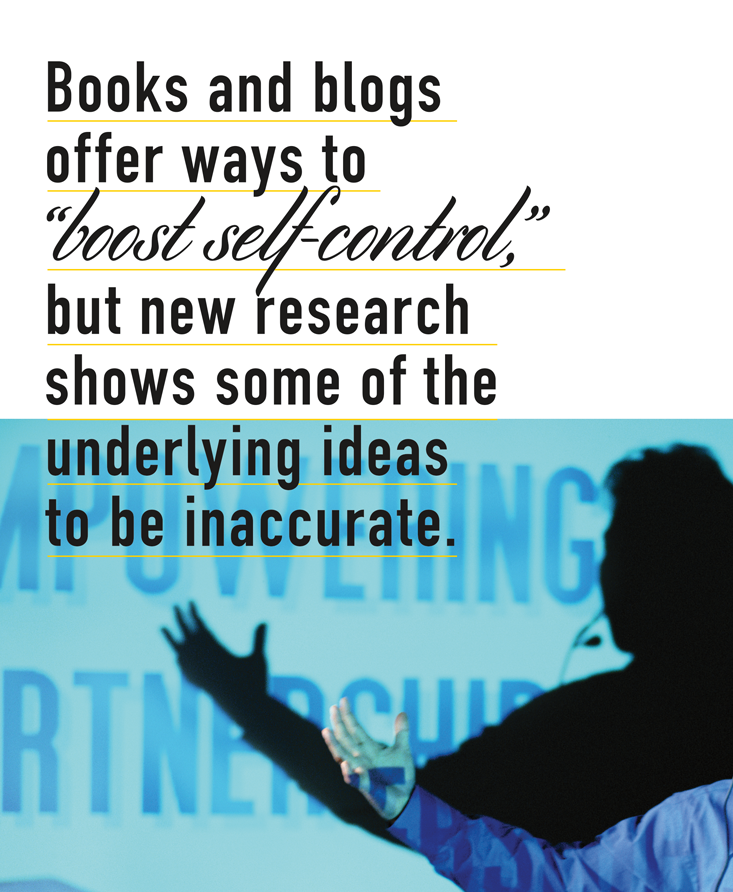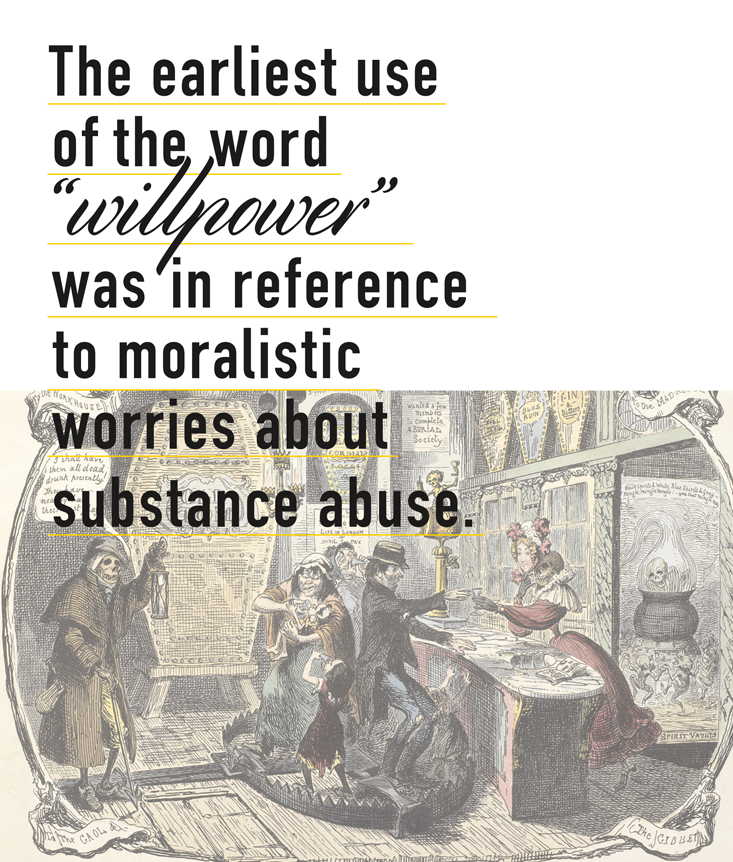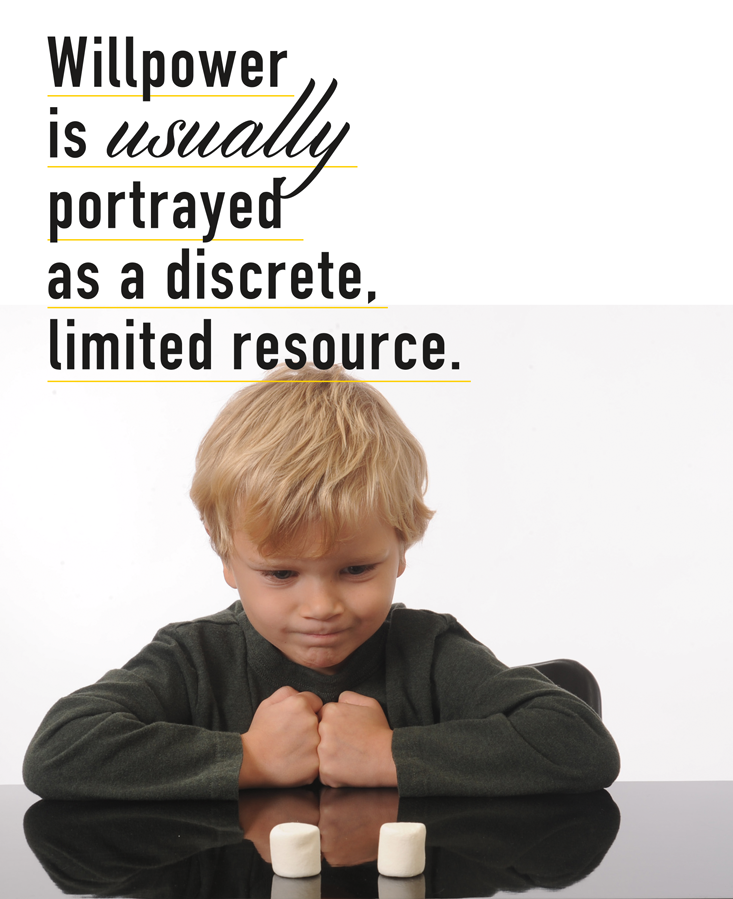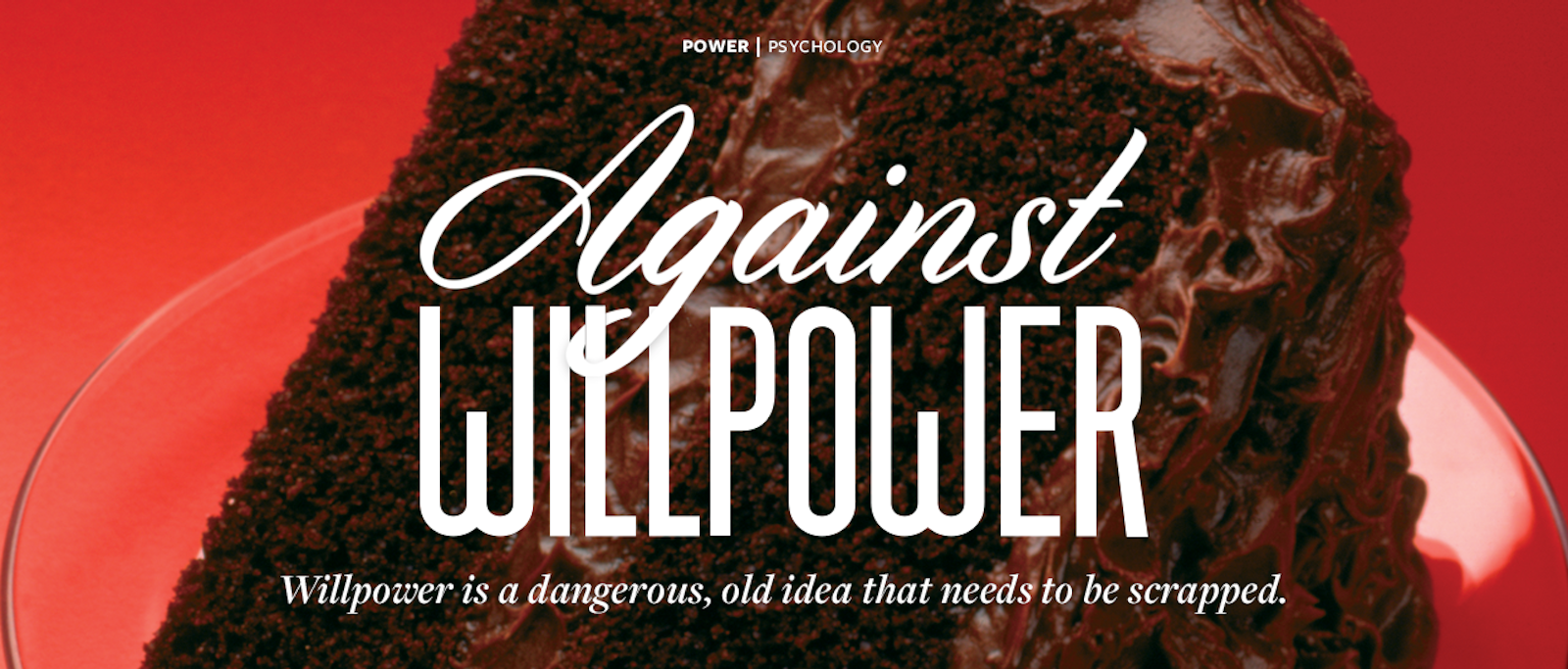Thomas1 was a highly successful and mild-mannered lawyer who was worried about his drinking. When he came to see me at my psychotherapy practice, his wine intake had crept up to six or seven glasses a night, and he was starting to hide it from his family and to feel the effects at work. We discussed treatment strategies and made an appointment to meet again. But when he returned two weeks later, he was despondent: His drinking was totally unchanged.
“I just couldn’t cut back. I guess I just don’t have the willpower.”
Another patient of mine, John, also initially came to me for help with drinking. At our first meeting, we talked about moderation-based approaches and setting a healthier limit. But one month later, he came back to my office declaring that he had changed his mind and made peace with his drinking habits. Sure, his wife wasn’t always thrilled with how much he drank, he told me, and occasionally the hangovers were pretty bad, but his relationship was still fairly solid and drinking didn’t cause any truly significant problems in his life.

In the abstract, John and Thomas are similar: They both succumbed to short-term temptations, and both didn’t keep their long-term goals. But while Thomas attributed that outcome to problems with willpower, John came to reframe his behavior from a perspective that sidestepped the concept of willpower altogether. Both John and Thomas would resolve their issues, but in very different ways.
Most people feel more comfortable with Thomas’ narrative. They would agree with his self-diagnosis (that he lacked willpower), and might even call it clear-eyed and courageous. Many people might also suspect that John’s reframing of his problem was an act of self-deception, serving to hide a real problem. But Thomas’ approach deserves just as much skepticism as John’s. It’s entirely possible that Thomas was seduced by the near-mystical status that modern culture has assigned to the idea of willpower itself—an idea that, ultimately, was working against him.
Ignoring the idea of willpower will sound absurd to most patients and therapists, but, as a practicing addiction psychiatrist and an assistant professor of clinical psychiatry, I’ve become increasingly skeptical about the very concept of willpower, and concerned by the self-help obsession that surrounds it. Countless books and blogs offer ways to “boost self-control,” or even to “meditate your way to more willpower,” but what’s not widely recognized is that new research has shown some of the ideas underlying these messages to be inaccurate.
More fundamentally, the common, monolithic definition of willpower distracts us from finer-grained dimensions of self-control and runs the danger of magnifying harmful myths—like the idea that willpower is finite and exhaustible. To borrow a phrase from the philosopher Ned Block, willpower is a mongrel concept, one that connotes a wide and often inconsistent range of cognitive functions. The closer we look, the more it appears to unravel. It’s time to get rid of it altogether.
Ideas about willpower and self-control have deep roots in western culture, stretching back at least to early Christianity, when theologians like Augustine of Hippo used the idea of free will to explain how sin could be compatible with an omnipotent deity. Later, when philosophers turned their focus away from religion, Enlightenment-era thinkers, particularly David Hume, labored to reconcile free will with the ascendant idea of scientific determinism.
The specific conception of “willpower,” however, didn’t emerge until the Victorian Era, as described by contemporary psychology researcher Roy Baumeister in his book Willpower: Rediscovering the Greatest Human Strength. During the 19th century, the continued waning of religion, huge population increases, and widespread poverty led to social anxieties about whether the growing underclass would uphold proper moral standards. Self-control became a Victorian obsession, promoted by publications like the immensely popular 1859 book Self-Help, which preached the values of “self-denial” and untiring perseverance. The Victorians took an idea directly from the Industrial Revolution and described willpower as a tangible force driving the engine of our self-control. The willpower-deficient were to be held in contempt. The earliest use of the word, in 1874 according to the Oxford English Dictionary, was in reference to moralistic worries about substance use: “The drunkard … whose will-power and whose moral force have been conquered by degraded appetite.”

In the early 20th century, when psychiatry was striving to establish itself as a legitimate, scientifically based field, Freud developed the idea of a “superego.” The superego is the closest psychoanalytic cousin to willpower, representing the critical and moralizing part of the mind internalized from parents and society. It has a role in basic self-control functions—it expends psychic energy to oppose the id—but it is also bound up in wider ethical and value-based judgments. Even though Freud is commonly credited with discarding Victorian mores, the superego represented a quasi-scientific continuation of the Victorian ideal. By mid-century, B.F. Skinner was proposing that there is no internally based freedom to control behavior. Academic psychology turned more toward behaviorism, and willpower was largely discarded by the profession.
That might have been it for willpower, were it not for an unexpected set of findings in recent decades which led to a resurgence of interest in the study of self-control. In the 1960s, American psychologist Walter Mischel set out to test the ways that children delayed gratification in the face of a tempting sweet with his now-famous “marshmallow experiment.” His young test subjects were asked to choose between one marshmallow now, or two later on. It wasn’t until many years later, after he heard anecdotes about how some of his former subjects were doing in school and in work, that he decided to track them down and collect broader measures of achievement. He found that the children who had been better able to resist temptation went on to achieve better grades and test scores.1 This finding set off a resurgence of scholarly interest in the idea of “self-control,” the usual term for willpower in psychological research.
These studies also set the stage for the modern definition of willpower, which is described in both the academic and popular press as the capacity for immediate self-control—the top-down squelching of momentary impulses and urges. Or, as the American Psychological Association defined it in a recent report, “the ability to resist short-term temptations in order to meet long-term goals.” This ability is usually portrayed as a discrete, limited resource, one that can be used up like a literal store of energy. The limited-resource concept likely has its roots in Judeo-Christian ideas about resisting sinful impulses, and it seems like a natural analogy to other physical functions like strength, endurance, or breath. In the 1990s, the psychologist Roy Baumeister conducted a key experiment to describe this capacity, which he labeled “ego depletion”: A few undergraduate students were told to resist the urge to eat some fresh-baked chocolate cookies and instead eat from a bowl of red and white radishes, while others were allowed to snack freely on the cookies. Students who were made to exercise self-control performed worse on subsequent psychological tests, suggesting that they had exhausted some finite cognitive resource.
Studies supporting the ego depletion effect were supposedly replicated dozens of times, spawning best-selling books (including Baumeister’s own, Willpower) and countless research programs. But a 2015 meta-analysis examining those findings more closely, along with previously unpublished research, found a good deal of publication bias and very little evidence that ego depletion is a real phenomenon.2 Psychologists then assembled an international ego depletion experiment composed of more than 2,100 subjects. The recently published results failed to show any evidence that ego depletion is real.3 It appears to be just another casualty of psychology’s replication crisis.
If ego depletion does turn out to be wrong, it’s striking how seemingly well-established it became before more rigorous investigations dispelled the assumptions it rests on. The story of its rise and fall also shows how faulty assumptions about willpower are not just misleading, but can be harmful. Related studies have shown that beliefs about willpower strongly influence self-control: Research subjects who believe in ego depletion (that willpower is a limited resource) show diminishing self-control over the course of an experiment, while people who don’t believe in ego depletion are steady throughout. What’s more, when subjects are manipulated into believing in ego depletion through subtly biased questionnaires at the outset of a study, their performance suffers as well.
The problem with the modern notion of willpower goes far deeper than ego depletion. The usual academic simplifications surrounding willpower are under attack. In a widely-cited 2011 paper, Kentaro Fujita called on the psychology field to stop conceptualizing self-control as no more than effortful impulse inhibition, urging his colleagues to think more broadly and in terms of long-term motivations.4 For example, some behavioral economists argue that self-control should not be seen as simply suppressing short-term urges but instead understood through the lens of “intrapersonal bargaining”: the self as several different decision making systems often in conflict with one another. This model allows for shifting priorities and motivations over time—which is what happened with my patient John, who would say that he simply reevaluated his drinking issues in light of the complex calculus of competing advantages and disadvantages.

Another overlooked dimension of self-control is emotion regulation, a scholarly field that has exploded over the past few decades, with citations increasing approximately fivefold every five years since the early 1990s. This component of self-control is also largely ignored by the unidimensional willpower-as-muscle perspective that dominates today’s discussions. Intuitively, though, it should be clear that there’s an emotional component to some kinds of willpower: Stopping yourself from yelling at your annoying relative can be much different from resisting the urge to drink. Emotional self-regulation is a complex function, and as we’ve long known in psychotherapy, trying to willfully manage your emotional states through brute force alone is bound to fail. Instead, regulating emotions also includes skills such as shifting attention (distracting yourself ), modulating your physiological response (taking deep breaths), being able to tolerate and wait out the negative feelings, and reframing beliefs.
A paradigmatic example of reframing is the phenomenon of “temporal discounting,” in which people tend to discount future rewards in favor of smaller immediate payoffs. When offered $5 today versus $10 in a month, many people illogically choose immediate gratification. However, when the question is reframed to make the tradeoffs explicit—“Would you prefer $5 today and $0 in a month or $0 today and $10 in a month?”—more people choose the larger, delayed reward. Research suggests that reframing the question in this way nudges people toward delayed gratification because the different versions of the question employ entirely different cognitive processes. In a neuroimaging study, when the question is edited to explicitly mention $0, not only are the brain’s reward responses reduced, brain activity in the dorsolateral prefrontal cortex (a correlate of effortful self-control) decreases as well.5 A conscientious reframing of a problem in this manner would certainly be an example of willpower, but it would not fall into the conventional understanding of the term. Rather than relying on an effortful fight against impulses, this kind of willpower has the individual completely reimagine the problem and avoid the need to fight in the first place.
These hidden dimensions of willpower call into question the whole scholarly conception of the term, and put us into a lose-lose situation. Either our definition of willpower is narrowed and simplified to the point of uselessness (in both research and casual contexts), or it is allowed to continue as an imprecise term, standing in for an inconsistent hodgepodge of various mental functions. Willpower may simply be a pre-scientific idea—one that was born from social attitudes and philosophical speculation rather than research, and enshrined before rigorous experimental evaluation of it became possible. The term has persisted into modern psychology because it has a strong intuitive hold on our imagination: Seeing willpower as a muscle-like force does seem to match up with some limited examples, such as resisting cravings, and the analogy is reinforced by social expectations stretching back to Victorian moralizing. But these ideas also have a pernicious effect, distracting us from more accurate ways of understanding human psychology and even detracting from our efforts toward meaningful self-control. The best way forward may be to let go of “willpower” altogether.
Doing so would rid us of some considerable moral baggage. Notions of willpower are easily stigmatizing: It becomes OK to dismantle social safety nets if poverty is a problem of financial discipline, or if health is one of personal discipline. An extreme example is the punitive approach of our endless drug war, which dismisses substance use problems as primarily the result of individual choices. Unhealthy moralizing creeps into the most quotidian corners of society, too. When the United States started to get concerned about litter in the 1950s, the American Can Company and other corporations financed a “Keep America Beautiful” campaign to divert attention from the fact that they were manufacturing enormous quantities of cheap, disposable, and profitable packaging, putting the blame instead on individuals for being litterbugs. Willpower-based moral accusations are among the easiest to sling.
In the end, believing in willpower is often simply not necessary. Now, when I hear the word “willpower,” it’s a mental red flag that prompts me to clarify further. Did my patient, Thomas, really have a willpower problem? While he struggled with alcohol cravings, he had no problem motivating himself in the positive sense, continuing to be extremely successful in his professional career and excelling as an amateur athlete, winning several competitions around the New York City area. His difficulty resisting the impulse to drink didn’t seem to be related to this ability to stick with a plan. Some researchers call this quality “self-discipline” and differentiate it from impulse control or resisting temptations. Which of those cognitive functions is the “real” willpower? To ask that question is to miss the point.
He ended up doing well. Once we got further into the issues driving his drinking, it became clear that he hadn’t fully realized how much stress was affecting his life. Not only was he beating himself up, thinking that he should just be able to force himself to quit, he had totally unrealistic ideas of how much he should be able to accomplish at work, home, or otherwise. By focusing on the bigger picture—managing his stress and anxiety and interrogating his expectations of himself—he was finally able to cut back, without such a sense of struggle.
And he did this all without worrying much about willpower.
Carl Erik Fisher is an assistant professor of clinical psychiatry at Columbia University, where he works in the Division of Law, Ethics, and Psychiatry and teaches in the university’s master’s in bioethics program.
References
1. Mischel, W., Shoda, Y., & Rodriguez, M.L. Delay of gratification in children. Science 244, 933-938 (1989).
2. Carter, E.C., Kofler, L.M., Forster, D.E., & McCullough, M.E. A series of meta-analytic tests of the depletion effect: Self-control does not seem to rely on a limited resource. Journal of Experimental Psychology: General 144, 796-815 (2015).
3. Hagger, M.S. & Chatzisarantis, N.L. A multi-lab pre-registered replication of the ego-depletion effect. Perspectives on Psychological Science 11, 546-573 (2016).
4. Fujita, K. On conceptualizing self-control as more than the effortful inhibition of impulses. Personality and Social Psychology Review 15, 352-366 (2011).
5. Magen, E., Kim, B., Dweck, C.S., Gross, J.J., & McClure, S.M. Behavioral and neural correlates of increased self-control in the absence of increased willpower. Proceedings of the National Academy of Sciences 111, 9786-9791 (2014).
Lead image courtesy of Camerique / ClassicStock / Getty Image






























